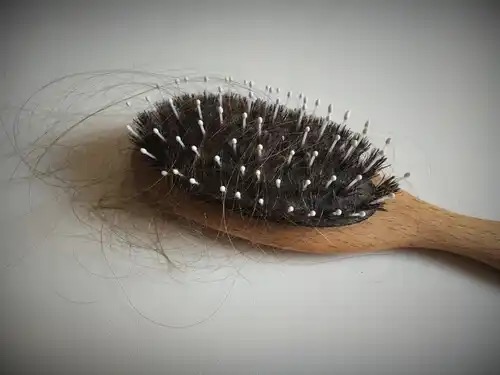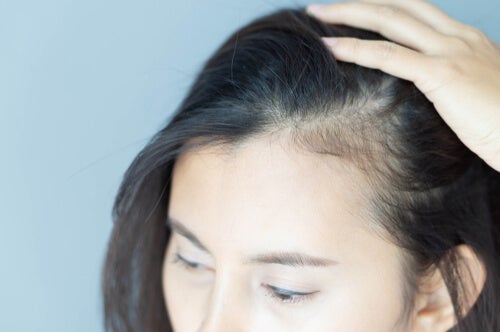One of the most common causes of hair loss is stress. However, you may not even recognize the degree to which you’re suffering from it. This is usually because you’re under so much stress that you just don’t see what’s happening to you. Nevertheless, hair loss can be a definite sign of something wrong in your emotional world.
On the other hand, hair loss isn’t always due to stress. However, if there’s no organic cause or you’re not taking any drug or substance that may precipitate hair loss, stress will probably be the cause. Science proved this fact.
Stress triggers many physiological processes that lead to hair loss. Although everyone loses hair, when it becomes constant and intense, you need to see a doctor. Although doctors often don’t pay too much attention to this condition, it’s worrisome for many people.
“Don’t anticipate trouble or worry about what may never happen.”
-Benjamin Franklin-
Hair loss
We have between 100,000 and 150,000 hairs on our scalp. Experts suggest that 85 percent of these are in the growth phase. Between 13 and 14 percent are in the fall phase. The remaining one to two percent are in the resting phase.
Usually, you lose between 70 and 100 hairs a day. Thanks to new growth, they’re easily replenished. However, when hair loss is due to stress, there’s a generalized loss.
Your hair might fall when you run your hand over your head or comb your hair. You may see fallen hair on your pillow and on your clothes. This condition is called alopecia nervosa, which leads to small bald spots on your head. The good news is that it’s a reversible situation.
Stress and hair loss
Your body goes on alert when it faces stress. In this sense, stress is nothing more than your body’s reaction to the stimuli it perceives as threatening. Under these conditions, your body tries to conserve its energy. For this reason, it only concentrates on basic physiological functions and ignores others such as hair or nail growth.
The Mayo Clinic suggests that there are three types of hair loss linked to stress:
- Telogen effluvium. It occurs when the root of the hair follicle interrupts the hair growth process. One of the reasons this happens is due to high levels of cortisol, the stress hormone. It doesn’t occur straight away but after a while.
- Alopecia areata. In this case, the immune system attacks the hair follicles. When this occurs, the hair falls out in large quantities, leaving bald patches. It usually affects the beard and eyebrows as well.
- Trichotillomania. This is a more complex condition. In fact, in this case, the sufferer pulls their own hair out. They do it due to worry, doubt, and feelings of frustration.

What can you do?
If you notice generalized hair loss, you should consult your doctor. While it may be due to stress, it could also be caused by endocrine, immune, or other problems. If your doctor rules out organic or pharmacological causes, then it should be treated as stress-related.
Exercise is a natural and healthy way to treat stress. It should be carried out regularly. For example, walking for half an hour or exercising for 15 minutes a day is usually enough. Furthermore, you should make sure you get at least seven hours of sleep a night.
If you continue to feel extremely worried, despite trying these methods, it may be time to consult a psychologist to address your concerns.
The post Hair Loss and its Links to Stress appeared first on Exploring your mind.



















Comments